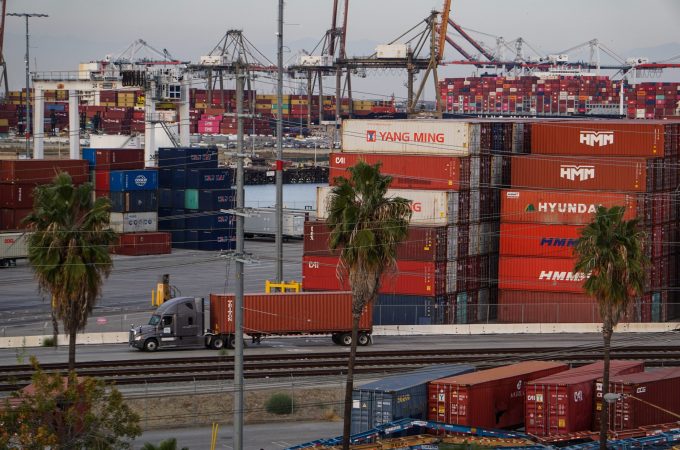2M 'go-slow' and massive capacity injection lights Asia-Europe touchpaper
Next month, 2M partners MSC and Maersk will deploy nine extra vessels on their Asia-Europe ...

California’s two major ports in the San Pedro Bay region is to levy a $10/teu Clean Truck Fund (CTF) fee from 1 April.
The charge was approved by the Los Angeles Harbor Commission in early November, with the proceeds of the fees committed to the CTF to promote the development of clean trucks.
The fee will not not apply to zero-emission trucks or cargo handled by rail.
The CTF is expected to raise around $90m from the handling of cargo containers, with the ...
Trump tariffs see hundreds of cancelled container bookings a day from Asia
'To ship or not to ship', the question for US importers amid tariff uncertainty
'Chaos after chaos' coming from de minimis changes and more tariffs
Forto 'sharpens commercial priorities' as it lays off one-third of staff
'Disastrous' DSV-Schenker merger would 'disrupt European haulage market'
List of blanked transpac sailings grows as trade war heats up and demand cools
EC approves DSV takeover of DB Schenker
Overcapacity looms for ocean trades – with more blanked sailings inevitable
Amazon Air’s metamorphosis: 'a different air cargo unit from two years ago'
Shippers in Asia restart ocean shipment bookings – but not from China
India withdraws access for Bangladesh transhipments, in 'very harmful' decision
'Tariff hell' leaves industries in limbo – 'not a great environment to plan'

Comment on this article